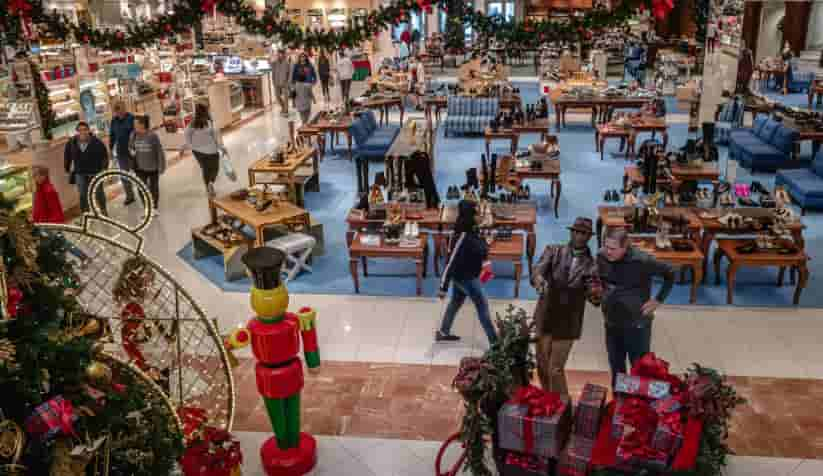Contents
Santa Claus has a place in almost all of our childhood memories with his sympathetic smile, long white beard and red outfit. So much so that when we woke up on New Year’s morning, most of us searched left and right to see if Santa had brought us a present. (After all, we were well-behaved kids :)) It is clear that New Year’s Eve is unforgettable for Generations X and Y in the first days of emerging new televisions as a new invention. We are also familiar with the words “Happy Christmas“, which are frequently used in New Year’s Eve movies broadcast on TV channels, right? 🙂
Meanwhile, we should state from the outset that religious motifs and cultural habits are not the same thing. Regardless of our beliefs, we should not be prejudiced against cultural habits that celebrate the arrival of the new year on a global scale. Now let’s move on to detailed definitions and explanations on this subject.

The History of Christmas: From Ancient Roots to Modern Celebrations
At this point, it should be noted that New Year which is just a Christian tradition, is celebrated all over the world on December 25. Furthermore, it actually has nothing to do with New Year’s Eve as we know it. So, Christians celebrate the birth of Jesus in 25th of December as Christmas. If we leave the debates aside, it should be noted that; New Year’s Eve is a foreign tradition for some people and for others it is just an ordinary entertainment night celebrating the upcoming New Year. Frankly, depending on how you look at the issue, the meaning and importance of that day will change for you.
In this stage, New year’s first day which has a religious meaning and is a day celebrated mainly by Catholics, is not celebrated as a religious holiday in countries of other religions. What is celebrated in these countries and has become a tradition since the end of the 18th century is the activities to welcome the New Year on the night of December 31st.
Here, let’s emphasize again that it is actually the same thing, but New Year’s Eve is a different concept 🙂 However, while Santa Claus used to be mentioned as a Christian priest, over time he has turned into a fictional character who travels on the snow with his sleigh pulled by reindeer and distributes gifts to well-behaved children.

The Meaning of Christmas: A Season of Giving and Togetherness
The history of Christmas, also known literally as Holy Nativity actually goes back to before the birth of Christianity. By the way, it should be noted that the word Christmas also means birth in ancient languages. So, this word basically symbolizes a new year and a new birth.
In connection with this, it should be stated that one of the old pagan customs during the Roman period was to welcome the New Year, which was coming towards the end of the year. Although these explanations are not true according to some, there are old pagan custom influences in the emergence of Santa Claus. Conservative Christians do not agree with this explanation but there are scholars who have strong evidence for ancient pagan practices. On the other hand, there are some scientists and clergy who claim that special day was celebrated in ancient Rome since the 4th century.
At this point, in conclusion, the history of this special day which is celebrated every year on December 25, dates back either to ancient Rome (religious explanation) or to old pagan customs (non-religious explanation).
The day December 24 is called Christmas Eve. It is also a place where people come together culturally, eat food and pray to God. Moreover, it is a religious night where they celebrate the birth of Jesus.
New Year Traditions Around the World: Unique Customs and Rituals

New Year’s Eve is celebrated on the night of December 31 and especially in the last century, it is celebrated almost all over the world regardless of cultural and religious beliefs. In other words, since the arrival of a new year does not have a religious source or tradition, this night is celebrated by everyone whatever their religious beliefs are. As we mentioned before, on this special day which represents the arrival of the New Year, routines such as decorating the pine tree and exchanging gifts are done.
In fact, it is believed that Santa Claus will only bring gifts to well-behaved children on Christmas day, inspired by old pagan customs and the god Otin in mythology. In this context, during the New Year’s week, the the special new year tree is decorated, toys and candies are placed in the socks and the children are told that Santa brought these gifts for them 🙂 However, it is clear that concepts such as Santa Claus have a religious place in western societies dominated by conservative voters, such as American Republicans.
Although Protestant churches forbade commemorating or celebrating this day in certain periods of history, especially Catholic and Orthodox churches have associated Christmas with the Prophet Jesus since ancient Roman times. They consider it as the birth of Jesus and attributed a great religious meaning to this day.

In this context, we recommend that you also read Charles Dickens‘s “A Christmas Carol”. The relevant work tells the story of a loan shark who does not believe in it and does not attach any religious meaning to it, and the visit of ghosts and the spirit of New Year to him. This book, which was later turned into a movie, emphasizes the religious aspect of that special day.
Religious Theme or Just Tradition for Everyone?
If we go back to our question in this title, we can say with peace of mind that in the capitalist liberal economic system of the 21st century, New Year’s Eve has now turned into a commercial tradition.
In line with that, this tradition which has become an almost billion-dollar gift economy worldwide, has also been adopted in non-Christian societies over time. On the other hand, when it comes to holidays, it should be reminded that January 1st has been declared a public holiday in almost every country globally.

New Year and The Shopping Economy Around World
There are many people around us who describe Valentine’s Day, Mother’s Day and similar special days as “insignificant days that exist only to stimulate the shopping economy”. Generally, in a way, we get angry at them and accuse them of not being emotional. However, if we look at it from another perspective, they are not wrong 🙂 Because almost half of the total shopping done every year in the world takes place on such special days.
According to a research conducted in America, the most shopping day is Black Friday in all year while Christmas Day spending comes in second place. According to the same research, each citizen spent approximately 900 USD per person in New Year’s expenses in the United States in the last year. If this amount is multiplied by the population, we encounter a huge economic reality of approximately 300 Billion Dollars. (Capitalist style economics:))

Now, let’s think again about those close people to us who see such days as shopping and consumption frenzy. We understand them more now, right? So, although the concepts of Christmas and Santa Claus have become a cultural event, especially in the last century, let’s face it that there are also some underlying elements that trigger the liberal market economy.
Now, going back to our initial topic, is Christmas a religious ceremony or a cultural event? In fact, if we approach the issue from the economic perspective that we mentioned, it is neither of them. In this context, it seems that we must agree with those who say that New Year’s celebrations are completely economic and are one of the dogmas of the liberal capitalist economy. Of course this is also just a comment and you don’t have to agree with it 🙂
